London stocks on the FTSE 100 suffered more losses in early trade on Friday as Trump’s sweeping tariffs fuelled recession fears, and as investors eyed the release of the latest US non-farm payrolls report.
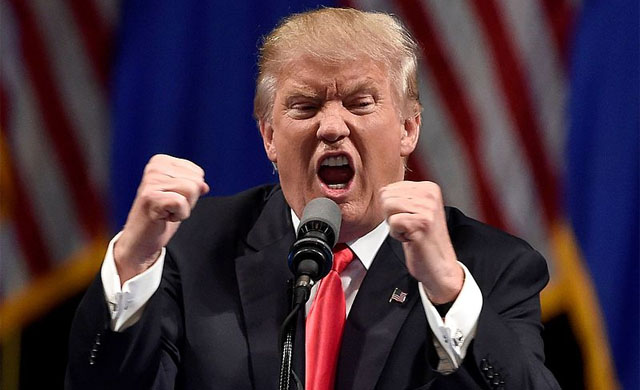
At 0830 BST, the FTSE 100 was down 0.5% at 8,428.75, having closed 1.6% lower on Thursday.
Investors were mulling comments from International Monetary Fund chief Kristalina Georgieva, who said that US tariffs were “a significant risk to the global outlook”.
She said in a statement that it was “important to avoid steps that could further harm the world economy” and appealed to the US and its trading partners “to work constructively to resolve trade tensions and reduce uncertainty”.
Kathleen Brooks, research director at XTB, said: “The March payrolls figure seems very stale and out of date after this week’s tariff announcements. Friday’s payrolls data will not be impacted by Trump’s extreme tariffs, we will need to wait for the coming months to see how this could impact the hard US economic data, which has only moderated slightly, compared to a sharp fall in the soft economic data since the start of 2025. Either way, payrolls are always worth watching.
“The market is expecting no major surprises from the March report, with 140k non-farm jobs expected to be created, the unemployment rate is expected to remain stable at 4.1%, and average hourly earnings are expected to have grown by 4% YoY, within the long-term range.”
In equity markets, it was a similar story to Thursday in terms of which sectors were winning and which were losing, with banks under the cosh but defensive utilities on the rise.
Standard Chartered, NatWest, Barclays and HSBC fell, while SSE, Severn Trent and United Utilities gained.
BP slumped after the oil giant said that its chair was stepping down amid calls by investor groups for a shake-up of the board.
Helge Lund, who has held the role since January 2019, will leave “in due course”, BP said, most likely in 2026 once his successor has been appointed.
The announcement comes less than a month after activist investor Follow This said it would call for a vote against Lund’s reappointment at April’s shareholder meeting.
The group is angry that Lund did not offer an investors a say on BP’s decision to scrap its energy transition targets.
Elsewhere, Travis Perkins rallied after an upgrade to ‘buy’ from ‘hold’ by Stifel, which said the risk/reward was compelling at a historically low share price.
Top 10 FTSE 100 Risers
| Sponsored by Plus500 |
|
| # | Name | Change Pct | Change | Cur Price | |
|---|---|---|---|---|---|
| 1 | 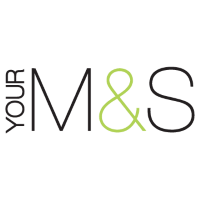 |
Marks And Spencer Group Plc | +2.21% | +8.20 | 379.20 |
| 2 |  |
Sse Plc | +2.15% | +35.50 | 1,688.50 |
| 3 |  |
United Utilities Group Plc | +1.87% | +20.00 | 1,091.00 |
| 4 | 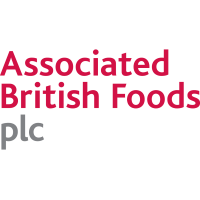 |
Associated British Foods Plc | +1.82% | +36.00 | 2,019.00 |
| 5 |  |
Imperial Brands Plc | +1.52% | +44.00 | 2,944.00 |
| 6 |  |
British American Tobacco Plc | +1.45% | +46.00 | 3,228.00 |
| 7 | 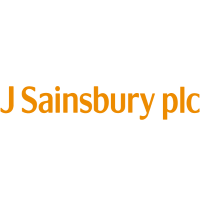 |
Sainsbury (j) Plc | +1.25% | +3.00 | 242.40 |
| 8 | 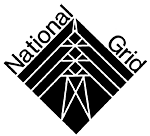 |
National Grid Plc | +1.19% | +12.50 | 1,065.50 |
| 9 |  |
Halma Plc | +0.94% | +24.00 | 2,586.00 |
| 10 | 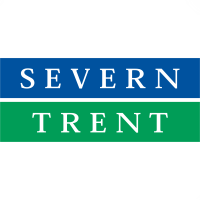 |
Severn Trent Plc | +0.93% | +25.00 | 2,718.00 |
Top 10 FTSE 100 Fallers
| Sponsored by Plus500 |
|
| # | Name | Change Pct | Change | Cur Price | |
|---|---|---|---|---|---|
| 1 |  |
Aib Group Plc | -10.96% | -55.00 | 447.00 |
| 2 |  |
Banco Santander S.a. | -7.34% | -37.50 | 473.50 |
| 3 | 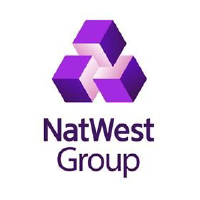 |
Natwest | -6.87% | -31.10 | 421.40 |
| 4 |  |
Barclays | -6.52% | -17.65 | 253.25 |
| 5 |  |
Hsbc Holdings Plc | -5.79% | -46.60 | 758.10 |
| 6 | 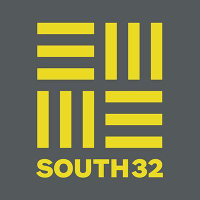 |
South32 Limited | -5.55% | -8.00 | 136.20 |
| 7 |  |
Lloyds Banking Group Plc | -5.39% | -3.76 | 65.94 |
| 8 | 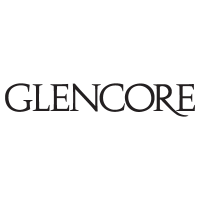 |
Glencore Plc | -5.23% | -13.65 | 247.15 |
| 9 |  |
Airtel Africa Plc | -4.94% | -8.10 | 155.90 |
| 10 |  |
Standard Chartered Plc | -4.78% | -47.80 | 951.20 |
US close: Markets hammered by Trump’s tariff plan, S&P 500 falls 4.8%
US stock markets suffered their worst sell-off in five years on Thursday after president Donald Trump unveiled a barrage of sweeping trade tariffs that were much more severe than expected.
Trump said the tariffs were a “historic executive order instituting reciprocal tariffs on countries throughout the world”, with the White House revealing that it would slap a baseline tariff rate of 10% on all nations, effective 5 April.
Even bigger duties against countries that levy higher rates on the US – such as Japan, Europe, South Korea and Vietnam – are set to be put in place in coming days, according to the Trump administration.
“Some might argue that the sheer scale of the tariffs means that negotiations will be next, leading to a recovery in risk appetite, but comments from administration members seem to suggest that no talks are forthcoming yet. Markets, it seems, are on their own,” said Chris Beauchamp, chief market analyst at IG.
The S&P 500 finished 4.8% lower at 5,396.52 – its biggest one-day loss since 2020 – while the Nasdaq plummeted 6.0% to 16,550.61, with both closing at their lowest levels since early August. The Dow sank 4.0% to 40,545.93, its lowest close since September.
The S&P 500 has now fallen 10% since Trump took office late last year, marking the worst 10-week start under a new president since George Bush came into power in 2001.
Companies with complex, international supply chains were bearing the brunt of the sell-off, as investors attempted to calculate how bad the impact of additional trade duties would be on bottom lines – particularly for stocks in the apparel and tech sectors.
“Not only do these companies have to consider the cost of importing, trying to rejig their supply chains and dealing with a homegrown consumer under pressure from rising prices, there’s also the possibility of a global backlash against all things American,” said Danni Hewson, head of financial analysis at AJ Bell. “That’s before reciprocal tariffs are taken into account, something which is injecting another dose of uncertainty into an already febrile investor pool.”
A sea of red
Apparel stocks were notable fallers, with huge losses registered for Nike, Lululemon, Under Armour, Gap, VF Corp and Ralph Lauren. Auto stocks were also falling heavily, including General Motors and Ford. Meanwhile, tech giants like Apple fell with the iPhone maker suffering its heaviest fall in five years (-9.3%).
One bright spot in the tech sector was Intel, which staged a late rally to finish higher on reports it has agreed to a chipmaking joint venture with TSMC.
The travel sector was also reeling from the news, with airlines and cruise companies falling sharply on the back of fears that a pick-up in inflation will hit consumer spending. American Airlines, JetBlue, Carnival, Norwegian, Southwest and United all tanked.
Even toy stocks weren’t immune to the sell-off, with Mattel and Hasbro posting double-digit losses as investors fretted about the impact that tariffs would have on their overseas manufacturing operations.
Economic data (mostly) makes for grim reading
Economic data took a back seat on Thursday despite there being plenty to digest – and plenty to be concerned about.
Weekly initial jobless claims fell by 6,000 to 219,000 in the week ended 28 March, slightly below expectations of 225,000. However, continuing claims rose by 56,000 to 1.903m the week prior, hitting their highest level since November 2021.
The Institute for Supply Management’s services sector purchasing managers’ index retreated to 50.8 in March from 53.5 in February, well below the consensus forecast of 53.0, with staffing numbers falling sharply.
US employers announced 275,240 job cuts in March, according to Challenger, Gray & Christmas, the highest number since May 2020 and the third-highest monthly total ever recorded.
Finally, the US trade deficit fell more than expected in February, down from January’s record high of $130.7bn to $122.7bn, compared with the market estimate of $123.5bn.
Friday newspaper round-up: Co-op Group, London pubs, Luton airport
Cross-Channel train services serving new destinations will be cheaper to run under a scheme to grow international rail travel from the UK. London St Pancras Highspeed (LSPH), which owns and operates the railway and stations from the capital to the Channel tunnel, said it would slash charges for operators planning new routes. Eurostar is the sole existing operator between the UK and Europe, with regular direct trains reaching only Paris and Brussels, as engineering work affects the Amsterdam route until May. – Guardian
The Co-operative Group plans to open at least a further 120 grocery shops this year after profits rose more than fivefold, but told the government that “layering costs” on retailers could hit high streets and communities. The mutual, which owns more than 800 funeral parlours and an insurance and legal advisory business as well as operating more than 2,000 convenience shops, said changes to employers’ national insurance contributions (NICs) and packaging regulations were expected to add £80m to its costs this year. It also lost £80m to shoplifters last year despite spending millions on new security measures. – Guardian
Pubs in London could stay open longer after Sir Sadiq Khan was handed fresh powers to overturn council bans on noisy bars amid a row over the capital’s dying nightlife. The London Mayor will be able to “call in” blocked planning applications as part of a package of measures designed by ministers to boost the capital’s hospitality industry, the Government said on Friday. – Telegraph
The Government has overruled the advice of planning officials to wave through the expansion of Luton airport. Heidi Alexander, the Transport Secretary, approved the move to almost double the capacity of Luton on Thursday. Passenger numbers will rise to 32m by 2043 thanks to the creation of a new terminal. The increase will almost double the 16.7m passengers that passed through Luton in 2024. Ms Alexander has given the green light to the expansion despite the Planning Inspectorate urging her to reject it on environmental grounds. – Telegraph
One of Britain’s biggest private companies has announced plans to double the size of a new factory in Texas to make even more products in the US in the wake of President Trump’s announcement of his tariff regime. Staffordshire-based JCB, which has been making diggers and other machinery in America for more than 50 years, said plans for a 500,000 sq ft factory in San Antonio had been revised since Trump unveiled a 10 per cent tariff on all imported UK goods. The $500 million plant, which is due to begin production next year and will employ up to 1,500 workers, will now be 1 million sq ft. – The Times


 Hot Features
Hot Features













